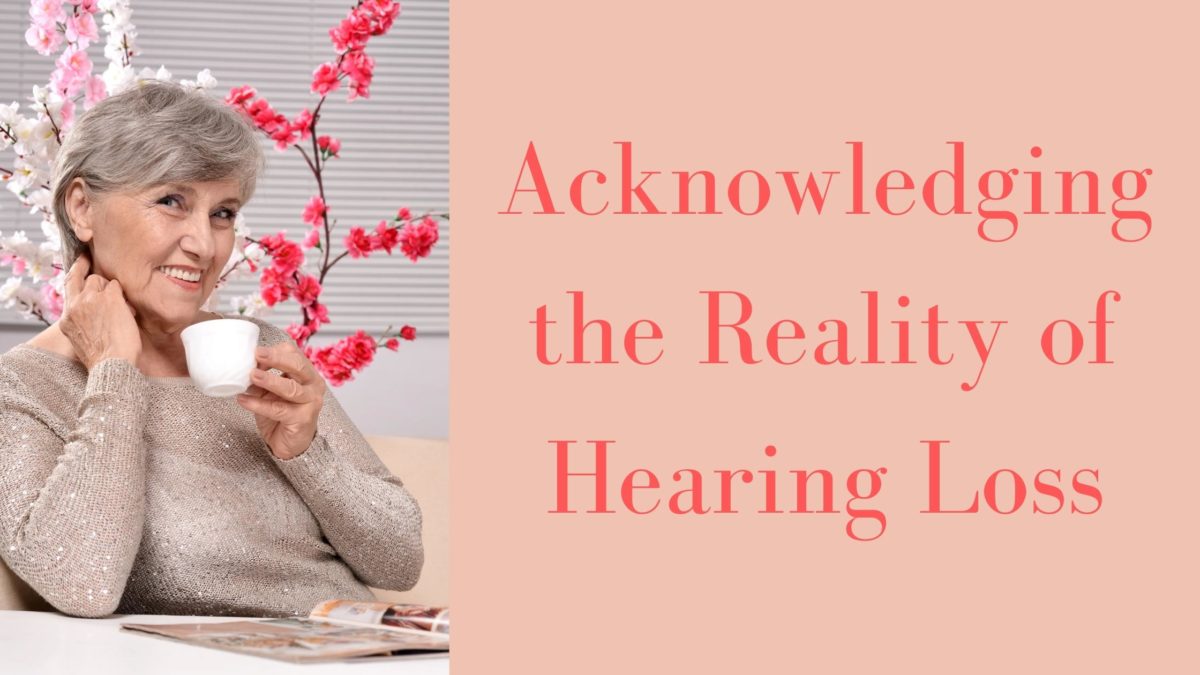Over 48 million Americans today suffer from some type of hearing loss, ranging from mild to profound. In fact, even as many as 20% of teenagers have measurable hearing loss in one or both ears. With a problem so widespread, it’s no wonder that a vast industry has grown to accommodate the needs of the hearing impaired.
The problem is that people tend to wait an average of seven years from the time they recognize hearing loss to the time they get their hearing tested and get a set of hearing aids. Everyone has their own reasons for waiting: they may think their hearing loss isn’t that bad yet, or they don’t want to feel “old.” Unfortunately, the effects of hearing loss can wreak havoc on our lifestyles and personal relationships, while simply acknowledging the fact that we have hearing loss and need help could prevent these problems from ever arising.
How Do We Know When We Have Age-Related Hearing Loss?
Age-related hearing loss can begin around age 45, but may not be noticeable for decades. Usually, the first sign that we have hearing loss is that someone else tells us we do. While many of us are not ready to accept that we have hearing loss just because someone else says so, it will likely not be long before we start to notice it ourselves.
Hearing loss becomes unavoidable for us when we find ourselves unable to hear conversations. Usually, we will first notice this when we are having a conversation in a group with some background noise. While everyone else seems able to follow the conversation, we can’t make heads or tails of what’s being said. As hearing loss progresses, we will notice the same problem even in quiet situations with just one other person.
Regular Hearing Testing Is Recommended
The Better Hearing Institute, a non-profit organization, recommends getting a hearing test once every decade until age 50, and once every three years after that. Regular hearing tests help keep us on top of our hearing health so we can notice problems before they get worse. If your hearing ability tests below that which is normal for your age group, there may be things you can do to slow the progress of hearing loss (modifiable risk factors include smoking and a poor diet). But if your hearing ability has declined to the point that hearing aids could help, you should start wearing them right away.
Untreated Hearing Loss Carries Risks
Once we have hearing loss, it’s not just a problem we should work around by asking people to speak up or relying more on written communication. Our brains actually change when we stop being able to detect certain frequencies, and over time the auditory cortex, toward the lower back portion of our heads, will atrophy. It’s not that the brain cells die, but the network of brain cells begins to collapse. When this happens, we can start to have memory issues and we are actually at a 500% increased risk of earlier onset of cognitive decline and dementia.
Many hearing healthcare providers offer training courses for those new to hearing aids. This is because as we adjust to not hearing properly, hearing aids can feel uncomfortable for a while until we readjust. Additionally, if our hearing loss has gone untreated for long enough, we may have to counteract the atrophy of our auditory cortex and actually re-learn to comprehend human speech!
People Who Wear Hearing Aids Appreciate Them!
While the situation is never hopeless, the best thing to do is get your hearing tested right away if you are due for a hearing test, and start wearing hearing aids if you need them. The sooner you start wearing hearing aids the sooner you’ll realize what you might have been missing out on! When asked after one year, over 94% of people who wear hearing aids say they are satisfied with them, and most report lifestyle improvements ranging from better memory to increased mobility, and even improvements in their social relationships and partnerships.
Far from making us “old,” hearing aids help us feel younger by increasing our ability to get along in the world. The hearing aids today are small and inconspicuous, and some are even designed to be stylish. At the same time, they’re more powerful than ever before, with DSP (digital signal processing) that can emphasize speech over background noise, and uses multiple microphones and speakers to create a greater sense of spatial awareness. In some situations with background noise, modern hearing aids can improve speech recognition to better than normal.

